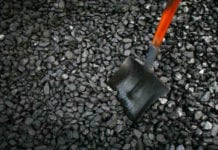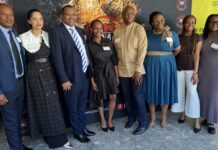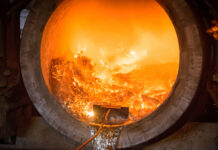
[miningmx.com] — AQUARIUS Platinum CEO Stuart Murray has hit out at
the regulatory uncertainties that adversely affect the group’s operations in both
South Africa and Zimbabwe.
Commenting on Aquarius’s production results for the December quarter, Murray said
production from the group’s Kroondal and Marikana mines in South Africa “remained
below capacity due to the widespread [and sometimes unjustified] application of
Section 54 safety stoppages”.
“This issue is making the South African mining industry a difficult place in which to
operate and, whilst zero harm is laudable, there must be practical implementation of
the law.”
“Not only has the incidence of these stoppages risen markedly, in many cases the
time now taken by the regional department to resolve these stoppages has risen
from some two days to a week or sometimes more.”
Turning to Zimbabwe – where Aquarius holds a 50% stake in the Mimosa platinum
mine – Murray said negative regulatory impositions continued to escalate in that
country.
“All these relentless challenges make it clear that some of the stakeholders in both
countries in which we operate simply do not grasp the fact that there are only 100
cents in the rand and 100 pennies in the dollar,” he said.
“There is simply no more to be taken before the operations are threatened.”
Concerning the business fundamentals facing the platinum sector, Murray said that
current challenges should not be underestimated.
“PGM [platinum group metals] margins are now low in both rand and dollar terms, and
oversupply – relative to real consumption – coupled with a poor economic outlook is
likely to ensure that this remains the case – at least in the short term.”
Attributable PGM production dropped 4% to 105,629oz for the
three months to end-December in what Numis analyst Andy Davidson described as “a
poor quarter, disappointing but in line with the platinum sector”.
Aquarius also suffered specific problems at its Rustenburg mines because of
“continued underperformance by the lead mining contractor,” as well as at Everest
due to “a protected strike by employees of the contractor”.
As a result, Murray said, Aquarius had begun a review of the contractual relationship
with the Rustenburg mining contractor because the “cost reimbursable model is
untenable in the current environment”.
He added that an optimisation study was also underway at Everest “as a result of
near-term poor ground conditions, lower prices and significant delays in permitting
open-cast reserves”.











